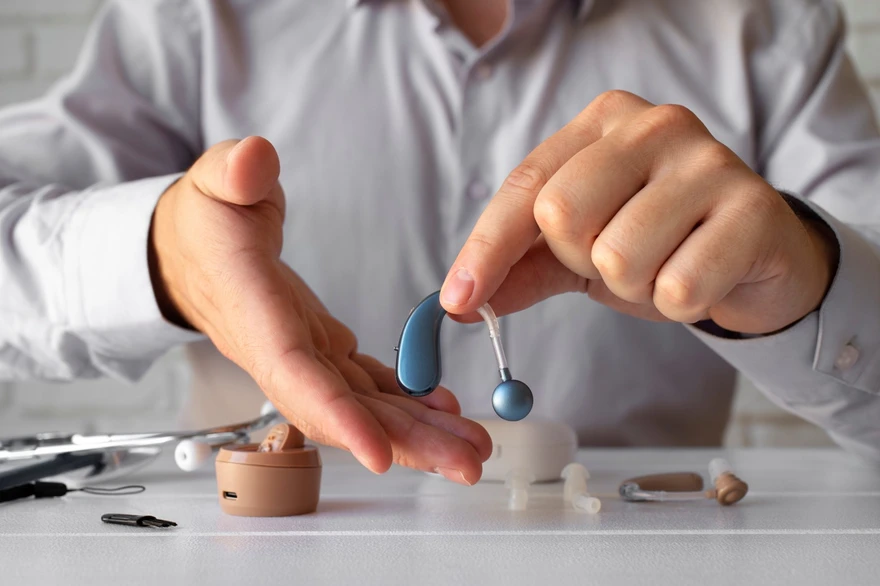Preventive Healthcare
Phosphorus Test: Purpose, Normal Range, Procedure & Results Explained

Table of Contents
- What is a Phosphorus or Phosphate Test?
- Why is The Phosphorus Test Important?
- When is a Phosphorus or Phosphate Test Advised?
- Prepare For a Phosphorus or Phosphate Test
- Procedure of Phosphate or Phosphorus Test
- Interpreting The Phosphate or Phosphorus Test Results
- What Factors Can Affect Phosphorus Test Results?
- How to Maintain Healthy Phosphate or Phosphorus Levels
- How Much Phosphorus Do You Need?
Phosphorus or phosphate is an essential mineral that plays several roles in your body. It is vital for healthy bones and teeth. It is necessary for the normal functioning of the heart, nerves, and muscles. And it helps in the production of protein and the storage and usage of energy.
Phosphorus or phosphate is available in sufficient amounts in foodstuffs, such as dairy, poultry, meat, legumes, nuts, and seeds.
This mineral is naturally present in bones and teeth. Some amount of phosphorus or phosphate is also present in your blood.
What is a Phosphorus or Phosphate Test?
A phosphorus or phosphate test is a simple blood test that helps measure the level of phosphorus in your blood. Doctors advise this test as abnormality in phosphorus or phosphate levels can lead to either a deficiency or toxicity:
Hypophosphatemia: occurs when phosphorus levels in the blood are low, which may be due to:
- Kidney disease
- Hypercalcemia or high calcium levels
- Vitamin D deficiency
- Alcohol use disorder
- Malnutrition
- Lack of sufficient phosphorus available through the diet
Hyperphosphatemia: occurs when phosphorus levels in the blood are high, which may be due to
- Kidney disease, as the kidneys fail to remove the excess phosphorus from your blood.
- Excessive consumption of phosphorus supplements
- Excessive consumption of vitamin D supplements
- Excessive dependence on laxatives and diuretics that contain phosphates
- Low levels of calcium in the blood or hypocalcemia
- Liver disease
Why is The Phosphorus Test Important?
A phosphorus test measures the level of phosphorus in the blood. This test is important because phosphorus is essential for the proper functioning of the body’s cells, tissues, and organs. The results of the phosphorus test can help doctors diagnose and treat a variety of conditions in various organs. However, too much phosphorus can be harmful; this test checks for excess phosphorus in the blood.
When is a Phosphorus or Phosphate Test Advised?
Doctors advise the phosphorus lab test if they observe the following symptoms of phosphorus deficiency:
- Fatigue
- Muscle weakness
- Weight gain or weight loss
- Loss of appetite
- Anaemia
- Bone disease
- Anxiety or confusion
- Irregular breathing
As the body needs to maintain the balance in calcium and phosphorus levels, abnormal calcium levels may cause unusual phosphorus levels, too.
Prepare For a Phosphorus or Phosphate Test
A phosphorus blood test is a simple test that doesn't require much preparation. However, please inform your doctor about any medications you may consume, such as vitamin D supplements, antacids, diuretics, or intravenous glucose, as these may affect your levels.
In addition, please inform your doctor about any herbal supplements you may take, as these could also interfere with the test results. Avoid the consumption of beer, aerated drinks, chocolates, and cheese before the test, as these foods are high in phosphorus.
Procedure of Phosphate or Phosphorus Test
The phosphorus blood test does not require you to fast. The laboratory technician will collect your blood sample in the following way:
- They will first clean the spot on your arm from where they draw the blood.
- Next, they will tie an elastic band around your arm or elbow to help locate your vein.
- Then they will use a needle to draw your blood from a vein in your arm or inside your elbow and collect it in a vial.
- They will then remove the elastic and apply a dressing on the injection site.
- Finally, they will send the blood sample to the laboratory for analysis.
You may feel a pricking sensation at the injection site for a short while. The phosphorus test may cause slight bruising or bleeding. You may also feel lightheaded after the test. In rare cases, the phosphorus blood test may cause an infection at the injection site, or your vein may swell after the blood is drawn. Apply a warm compress to reduce the swelling and get relief from the pain.
Interpreting The Phosphate or Phosphorus Test Results
Phosphorus is measured in milligrams per decilitre of blood. The normal range varies depending on age. Children usually have higher phosphorus levels as they require more of this mineral for proper bone development.
The normal range is:
- For children: 4.0 - 7.0 mg/dl
- For adults: 2.8 - 4.5 mg/dl
High Phosphorus Levels
Higher than normal levels of phosphorus cause hyperphosphatemia, which indicates:
- Kidney disease
- Hypoparathyroidism, where the parathyroid gland fails to make sufficient parathyroid hormone
- Excess levels of vitamin D
- Diabetic ketoacidosis or a complication of diabetes
- A build-up of calcium and phosphorus deposits in arteries, which could lead to heart attack and stroke, or cardiovascular disease
- Loss of calcium that causes weakened bones or osteoporosis
Low Phosphorus Levels
Lower than-normal phosphorus levels cause hypophosphatemia, which indicates:
- Hyperparathyroidism, where the parathyroid gland makes an excess parathyroid hormone
- Vitamin D deficiency, which could lead to a softening and deforming of bones, or osteomalacia
What Factors Can Affect Phosphorus Test Results?
Several factors can affect your phosphorus test results. Diet, medications, and supplements can all influence your phosphorus levels. Kidney function and gut health can also play a role in phosphorus levels.
There are a few factors that can affect your phosphorus test results. One is the time of day that you have your blood drawn. Phosphorus levels tend to be highest in the morning, so if your blood is drawn in the afternoon, your results may be lower than if it was drawn in the morning. Another factor is whether or not you have eaten recently. Phosphorus levels tend to be lower after a meal, so if you have fasted for your test, your results may be higher than if you had not. Lastly, certain medications can affect phosphorus levels, so if you are taking any medications, ensure disclosing the details to your doctor or the lab technician performing your test.
How to Maintain Healthy Phosphate or Phosphorus Levels
Phosphorus is essential in building healthy teeth and bones. It helps the body make proteins necessary for your proper growth and development and the repair of tissues and cells. It also works in coordination with vitamin B for normal functioning of the kidney, a normal heartbeat, and muscle contractions. Therefore, a diet rich in phosphorus is necessary.
Foods To Include:
- Protein-rich foods, such as beef, chicken, oysters, fish, organ meats
- Eggs, turkey, lamb, pork
- Milk and milk products
- Fruits such as apples, berries, grapes
- Vegetables such as carrots, cucumbers, potatoes
- Whole grains
- Dry fruits
- Nuts and seeds
- Whole grain bread and cereal
As essential as phosphorus is, excess levels of the mineral are dangerous. Therefore, avoiding or limiting the intake of foods high in phosphorus is crucial.
Foods To Avoid:
- Beer
- Cocoa
- Canned iced teas
- Beverages with phosphate additives
- Dark chocolates
- Dark colas
How Much Phosphorus Do You Need?
Your requirement for phosphorus depends upon your age. The Recommended Dietary Allowance (RDA) of phosphorus for:
- Adult men and women: 700 mg
- Children aged 9 - 18 years: 1250 mg
- Children aged 4 - 8 years: 500 mg
- Children aged 1 - 3 years: 460 mg
Conclusion
Phosphorus is an essential mineral and is found naturally in your bones. A phosphorus lab test is a simple blood test that helps detect the level of phosphorus in your blood. Low phosphorus levels indicate vitamin D deficiency, excessive consumption of alcohol, malnutrition, and a diet deficient in the mineral. Similarly, high phosphorus levels indicate an excessive consumption of phosphorus and vitamin D supplements, laxatives, diuretics, and liver and kidney disease.
However, abnormal phosphorus levels are not necessarily a sign of a medical condition. It could be due to your diet or low intake of calcium. A proper diet and regular calcium and phosphorus blood tests will help you maintain healthy levels of the mineral.


























